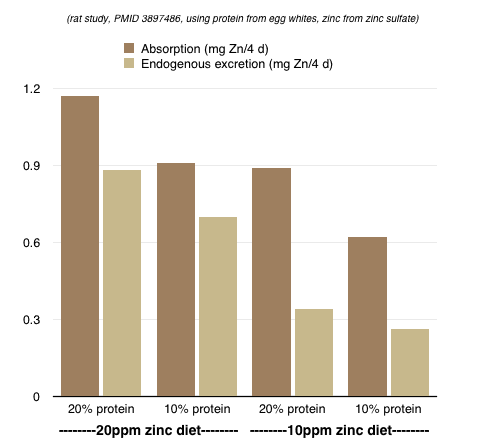Amazoniac
Member
Ingesting Plenty Of Calcium Protects Against Cadmium Absorption And AccumulationRegarding cadmium, I have trouble deciding how to balance it since it's easy for it to be in food too. For example, oysters love to concentrate it.
Follow along with the video below to see how to install our site as a web app on your home screen.
Note: This feature may not be available in some browsers.
Click Here if you want to upgrade your account
If you were able to post but cannot do so now, send an email to admin at raypeatforum dot com and include your username and we will fix that right up for you.
Ingesting Plenty Of Calcium Protects Against Cadmium Absorption And AccumulationRegarding cadmium, I have trouble deciding how to balance it since it's easy for it to be in food too. For example, oysters love to concentrate it.
Thanks Ella, I'll see if I can find anything.I would stay away from asian imports. Australian oysters are the best and cleanest your can get. We are really spoilt in Australia as our quality is hard to beat. Contact the wholesalers at the following link and inquire if they are available in your country.
http://australiasoystercoast.com/export-to-the-world/
I spent way too much time trying to wrap my head around this study, so here's my attempt to visually summarize it:Protein restriction reduces zinc absorption but high dietary protein appears to increase it

I never see cadmium accumulation in those individuals that drink lots of milk eat lots cheese, eating tonnes of seafood. Our seafood/oysters are top notch though. I see high cadmium in those individuals that think milk is cow puss and avoid it like the plague and are scared of seafood because of the mercury. They seem to be high in lead, cadmium and extremely low in their alkaline minerals especially calcium.
I do a lot testing; serum, RBC, hair and urine etc. I've seen health disasters with zinc supplementation, specifically in those poor unfortunate individuals placed on those popular methylation protocols being diagnosed as poor methylators. I have to go to great lengths to prove to them that they are being harmed by the zinc. They are convinced that if I take away their zinc they will become suicidal or worse. The suggestion of including seafoods like oysters or shellfish or cow puss just about sends them over the edge. Suggest more fruit and then they have nightmares about the fructose and sugar. The whole situation would be hysterical if it was not so tragic.How do you know this?
I do a lot testing; serum, RBC, hair and urine etc.
Herb Doctors - Blood Pressure Regulation, Heart Failure, and Muscle AtrophyAbsorption and metabolism of oral zinc gluconate in humans in fasting state, during, and after a meal
"[..]the element may cause slight gastrointestinal disturbances in some subjects who would therefore be inclined to take it with some food or after a meal (3,5)."
taking a supplement of free metal – iron, zinc or copper in the form of a free metal – it can interact with nutrients in your digestive system and oxidize them
I like this quote Amazoniac. I was always a little worried I wouldn't be getting much zinc with my high calcium intake."Supplemental or dietary calcium without phytate has little to no effect on zinc absorption at an adequate level of intake."
Hi Ella,I've seen health disasters with zinc supplementation
you should never eat them raw, always cooked
Any other good source of zinc besides oyester and seafoods?
Beef and oats :)
More recent investigations have confirmed the zinc-selenium antagonism.21